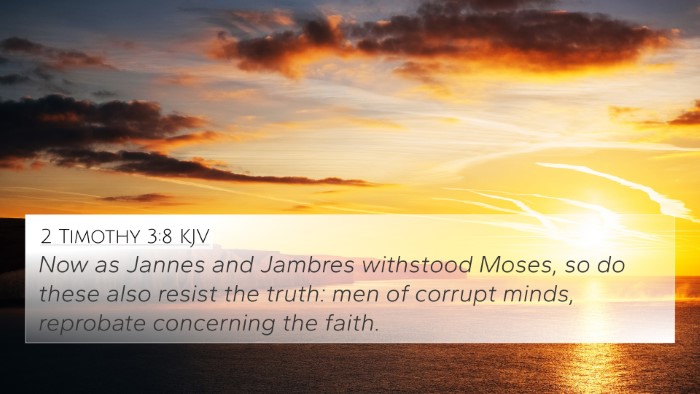Ezekiel 13:20 - Verse Meaning and Interpretation
Bible Verse: Ezekiel 13:20 (KJV): "Wherefore thus saith the Lord God; Behold, I am against your pillows, wherewith ye there hunt the souls to make them fly, and I will tear them from your arms, and will let the souls go, even the souls that ye hunt to make them fly."
This verse is part of a larger passage where God, through the prophet Ezekiel, addresses false prophets who deceive the people with lies and empty promises. The imagery of "pillows" symbolizes the false security these prophets offer, which God opposes vehemently. The act of 'hunting souls' signifies the manipulative tactics employed by these prophets to lead people away from the truth.
Understanding and Commentary
Matthew Henry’s Commentary: Henry explains that the ‘pillows’ represent comforting lies that provide a false sense of safety. The false prophets are depicted as hunters who ensnare unwitting souls, leading them away from the truth to a state of spiritual folly. God’s intervention symbolizes His authority and desire for people to return to genuine faith.
Albert Barnes’s Notes: Barnes emphasizes that God’s judgment is directed against these deceptive practices. The act of tearing the ‘pillows’ illustrates the dismantling of false beliefs. Barnes points out that true prophetic ministry should guide, not deceive; thus, the consequences for false prophets are severe as they mislead the flock of God.
Adam Clarke’s Commentary: Clarke elaborates on the significance of the term ‘pillows’, noting that they were likely charms or objects used for divination in those times. He indicates that the imagery reflects the deeper spiritual manipulation taking place, where the false prophets exploit the vulnerabilities of the people.
Key Themes and Biblical Connections
- False Prophets: This passage highlights the dangers of false prophets and teachers who mislead God's people. Notable cross-references include:
- Jeremiah 14:14: "Then the Lord said unto me, The prophets prophesy lies in my name: I sent them not, neither have I commanded them, neither spake unto them..."
- Matthew 7:15: "Beware of false prophets, which come to you in sheep's clothing, but inwardly they are ravening wolves."
- 2 Peter 2:1: "But there were false prophets also among the people, even as there shall be false teachers among you..."
- Divine Judgment: The Lord’s proclamation of judgment against the false prophets serves as a warning against false teaching and manipulation. Consider these verses:
- Isaiah 30:10: "...which say to the seers, See not; and to the prophets, Prophesy not unto us right things, speak unto us smooth things, prophesy deceits:"
- Jeremiah 23:32: "Behold, I am against them that prophesy false dreams, saith the Lord, and do tell them, and cause my people to err by their lies..."
- The Nature of True Prophecy: This verse also serves to separate true prophetic declarations from false ones:
- Amos 3:8: "The lion hath roared, who will not fear? The Lord God hath spoken, who can but prophesy?"
- 1 Corinthians 14:3: "But he that prophesieth speaketh unto men to edification, and exhortation, and comfort."
Summary of Insights
Spiritual Implications: Ezekiel 13:20 carries profound teachings regarding discernment in spiritual matters. The role of prayer, study, and reliance on the Holy Spirit is emphasized as believers navigate through teachings and prophecies. Seeking the truth and understanding God’s character is paramount to avoid falling into deception.
The Importance of Cross-Referencing: By employing a cross-reference system, believers can discern thematic links between Biblical texts, enhancing their understanding of prophetic messages across the Scriptures. This practice promotes deeper engagement with the Word, fostering spiritual growth and insight.
Conclusion
Ezekiel 13:20 serves not only as a historical warning but also as a timeless truth for believers today. Recognizing the dangers of false teachings and clinging to the Word of God are crucial for maintaining faith and obedience. This verse prompts reflection on contemporary issues within the church and encourages vigilance in the quest for divine truth.






